At Crate Free USA, our mission is to improve the lives of animals raised for food. And since the vast majority of Americans still eat meat, the best way to do this is to shop from local farmers who care about the animals they raise far more than the huge factory farms and corporations who own so much of the food industry today. While we do promote a reduction of meat in your diet, we also support our local farmers who raise their animals humanely and sustainably.
It’s easy for you to find a local, humane farmer near you. Just download our free mobile app!
This month we’re getting to know Deborah Niemann from Antiquity Oaks Farm. Their goal is to provide naturally grown heritage foods while educating people about sustainability and farming.
Tell us all about your farm?
Antiquity Oaks is a 32-acre farm near Pontiac in north-central Illinois. We moved here in 2002 from the Chicago suburbs because we wanted to grow our own food organically. When we shared our food with friends, they started asking if they could buy some, so the business part of the farm began.
Through the years we have raised just about every domestic animal that can be raised for meat, from cattle, pigs, and sheep to chickens, ducks, and pheasants. We have chosen to raise heritage breeds because they tend to be more hardy and healthy since they have evolved through the centuries prior to the invention of modern antibiotics and other drugs. If they couldn’t be raised organically, they wouldn’t be here today. This also means that we do our best to raise the animals in the most natural way possible. All of the animals on our farm are on pasture and free-range. We are not certified organic because we are so small, but we use locally grown, non-GMO feed, and drugs are never given to healthy animals. We have found that when animals are outside, even in winter, getting plenty of fresh air and sunshine, they tend to be very healthy naturally.
How did you first become involved in farming and your background?
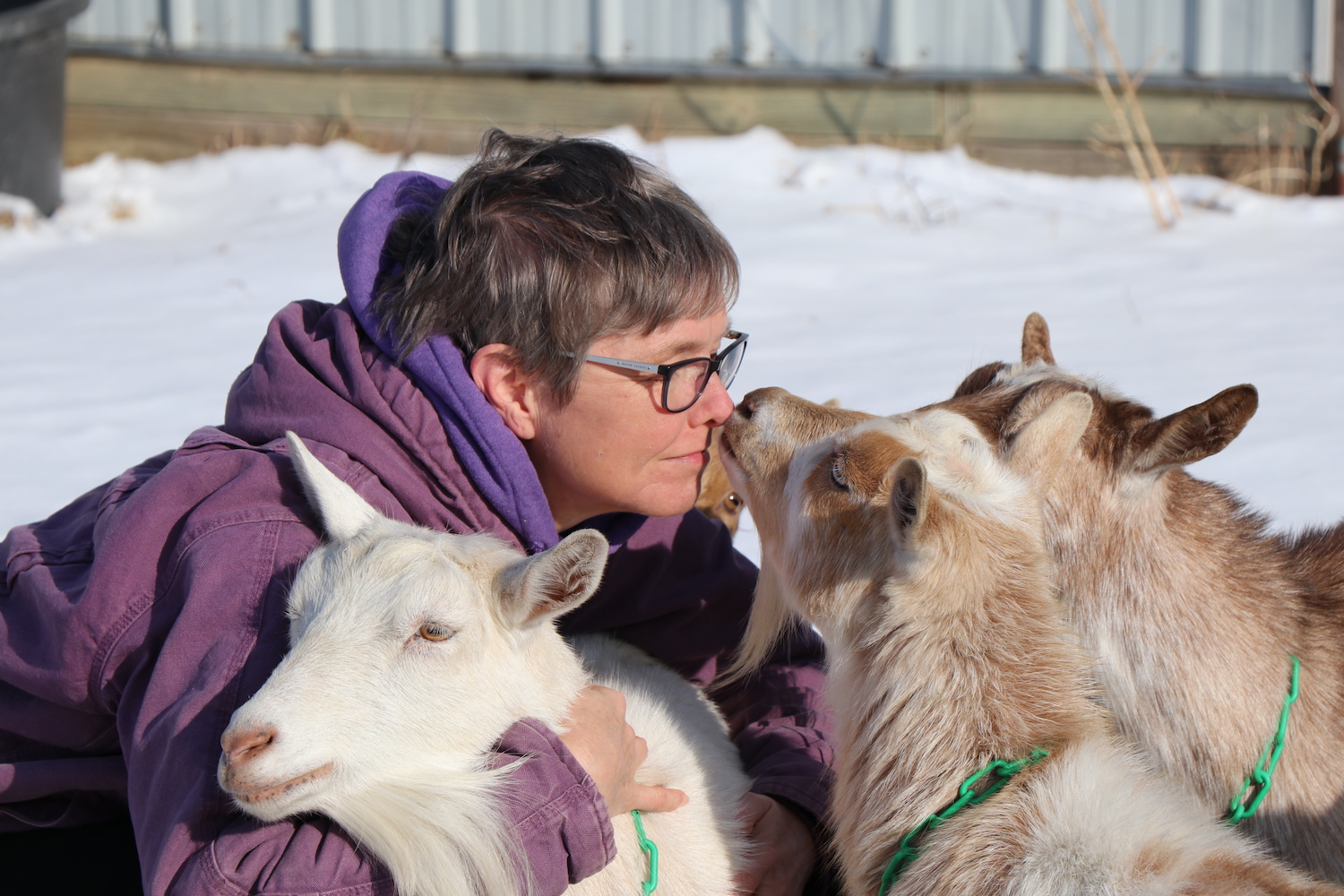
Deborah and some of their goats. A lot of people think goats have to be bottle-fed to be friendly, but they disagree. They let their moms raise their babies, and with plenty of attention and love, they find they are quite friendly and easy to work with!
I did not grow up on a farm, but all of my ancestors did. My parents moved to town when I was three years old, but some of my fondest memories as a child were visiting my grandparents farm. All of the animals there were running around outside, and I grew up thinking that’s how all animals lived.
In the late 1980s I read an article about factory farming and was shocked and upset that food animals were now kept in buildings and cages and crates, and my husband and I became vegetarians. When we moved to the country in 2002 to grow our own food organically, we had no intention of starting to eating meat after 14 years of not eating it.
However, we soon learned that if you breed animals, half of them will be males. Not only do the males have no practical purpose, but in some species they will start to fight. We had chickens for eggs, and since I didn’t want to have to continue to buy chicks from hatcheries we had some roosters. Within two years we had less than 2 hens per rooster, and the roosters started killing each other. We had a long discussion and decided that it was more humane for the roosters to get eaten than to be left alone to fight over the hens. Also, the hens were literally run ragged from having so many roosters. There is a very good reason why you only need one rooster for every 10-12 hens! Many of our hens had no feathers on their backs because roosters were jumping on top of them constantly all day long.
We had sheep for wool and within a few years had as many sheep as we felt our land could support. So we decided to start eating lamb. Then one day, I realized that I really did miss bacon. So, we made the conscious decision to start raising pigs for meat. Then one year we had too many goats, and we couldn’t sell them all as pets or breeding animals, so it was a fairly easy step at that point to decide to start using the male goats for meat.
Why is farming sustainably and humanely important to you?
If I am going to eat meat, I want it to be from an animal that had a wonderful life outside in the sunshine and fresh air. We don’t have to make animals miserable and force them into buildings to produce meat, dairy, or eggs, and I don’t want to be a part of that system. When I see how much fun pigs have eating grass and rooting, I can’t imagine raising them on concrete where they can’t engage in such a natural behavior.
What challenges do you face as a small farmer? Economically? Competition from Big Ag?
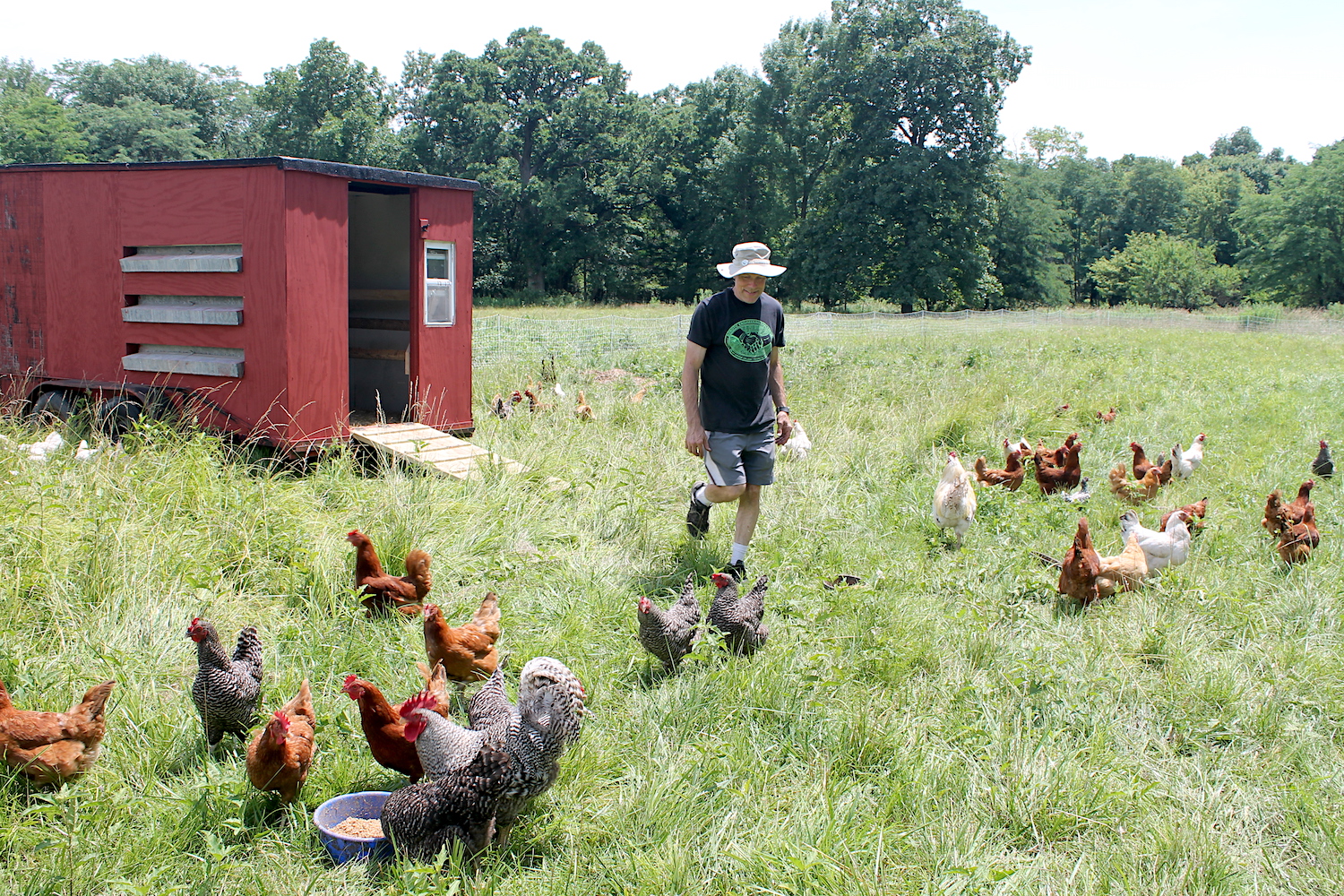
Mike is the primary chicken caretaker at Antiquity Oaks. The hens live in the Henmobile, which had a previous life as a food truck in Chicago. This allows them to move the hens to fresh grass after it has been grazed by their sheep.
Right now, our biggest challenge is that we don’t have enough processors for meat. Since Covid hit, and many of the larger packing plants shut down, bigger farms have started using the small lockers that used to be unofficially reserved for us smaller farmers. This is causing us to rethink our breeding plans because our processor is already booked through 2022. We are very nervous about the idea of breeding animals, knowing that we will have a challenge figuring out how to process them next year.
Prior to Covid, our biggest challenge was consumer education. Most people have no idea how animals are raised in large scale agriculture, and they don’t understand why meat from smaller farms is more expensive. They think it’s just economy of scale, but there is so much more to it than that!
What are your views on extreme confinement and gestation crates for pigs?
There is just no need for it. Plus it’s bad for the environment, the animals, and ultimately the people who eat them. For example, lard from pasture-fed pigs is higher in vitamin D and omega-3 fatty acids, so it is actually good for us. When pigs are raised indoors, they don’t naturally produce their own vitamin D, and when they are fed a diet high in grains, their fat winds up higher in omega-6 fatty acids, which are bad for humans to consume in higher quantities. Ideally we should have a 1 to 1 or 1 to 2 ratio of omega-3 to omega-6, but most Americans consume a 1 to 10 ratio.
Plus when pigs are raised in confinement, it causes a lot of health problems. When I was trying to buy my first pigs back in 2004, I was calling farmers to find some that were raised outdoors and without any pharmaceuticals. One farm I called told me that he only gives pigs what they really need because drugs are expensive. He went on to tell me that he had to give them all this one specific vaccine, for example, or they would all get nosebleeds and wouldn’t gain weight. My brain immediately screamed, “yeah, it’s because of poor air quality!” In 17 years of raising pigs outdoors, we have never had a single nosebleed.
I’ve also heard confinement farmers say that pigs can’t survive winter in Illinois outdoors, but that is just not true at all (see above photo).
Would you support a bill to ban extreme confinement? Should retailers and restaurants stop using suppliers who use them?
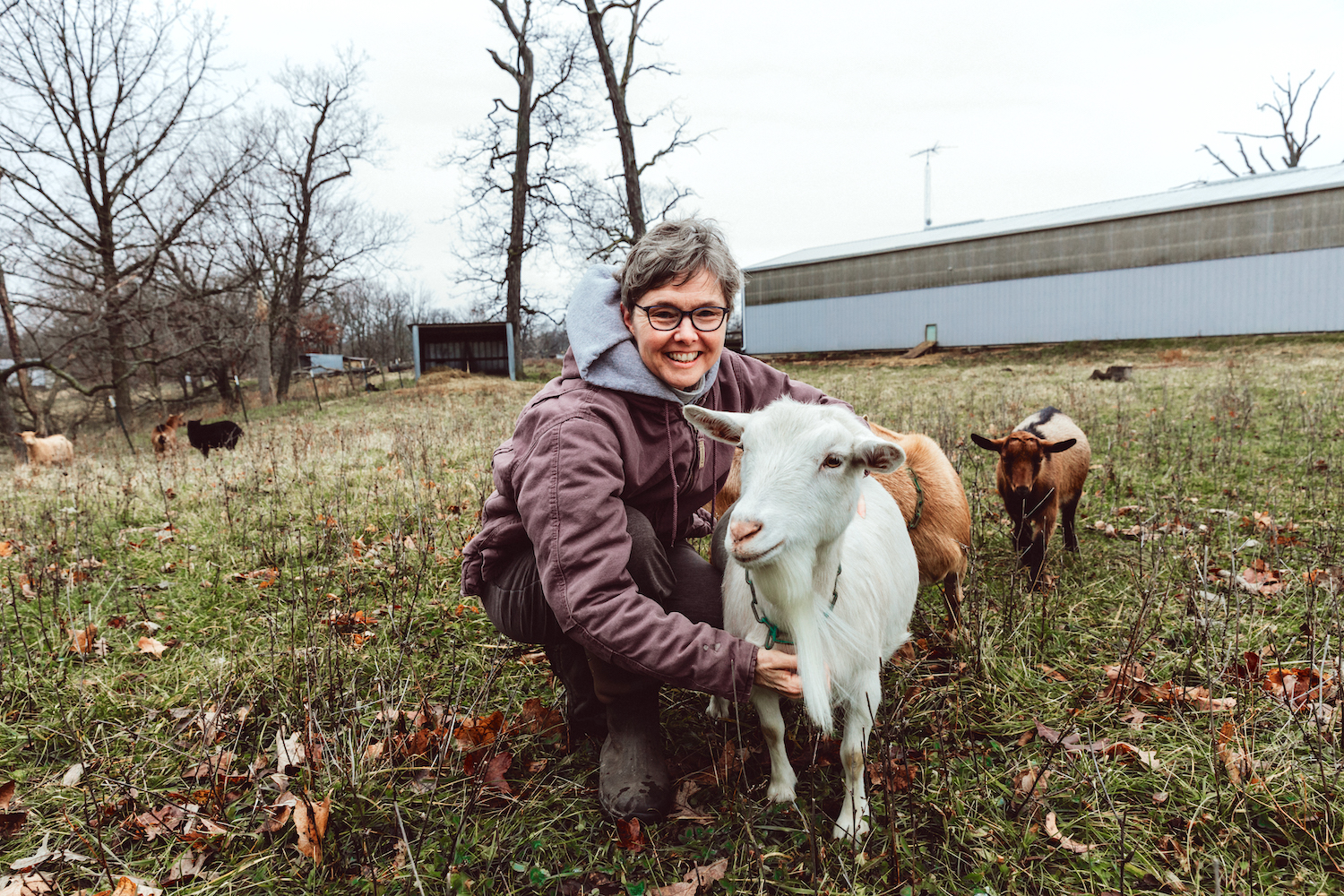
Blanche, a Nigerian dwarf doe, and Deborah in the pasture during fall. They use the goat milk to make their all natural soap, which is available unscented or with pure essential oils for scent.
Yes, I would definitely support a bill to ban extreme confinement because it is not needed. I think some farm-to-table restaurants have done a good job educating consumers about what differentiates their products from the restaurant next door that’s buying commercially raised products. But retailers and restaurants could definitely make a huge difference if they stopped buying meat from animals raised in confinement.
What can consumers do to help improve the lives of all our farm animals?
I’ve heard people in Big Ag say that they are only providing what the consumer demands, but the consumer is not educated about the products. If they were educated, I have faith that most people would at least reduce the amount of CAFO meat they buy, if not stop buying it entirely.
How do you market and sell your products? How can people shop with you/find you? Can they visit the farm?
We sell directly to the consumer. We have an egg CSA where we deliver eggs monthly to members in Will and McLean counties, we sell meat to consumers by the whole animal, and we also sell goat milk soap.
This fall we will have lamb available. Buying a whole lamb may sound like a lot of meat, but our lambs only weigh about 35-45 pounds hanging weight, and after processing, that will fit into a picnic cooler. We used to have open farm days pre-Covid and will start again at some point.
In the meantime, they can visit us online at AntiquityOaks.com and they can email me, deborah@antiquityoaks.com, for more info on purchasing anything.
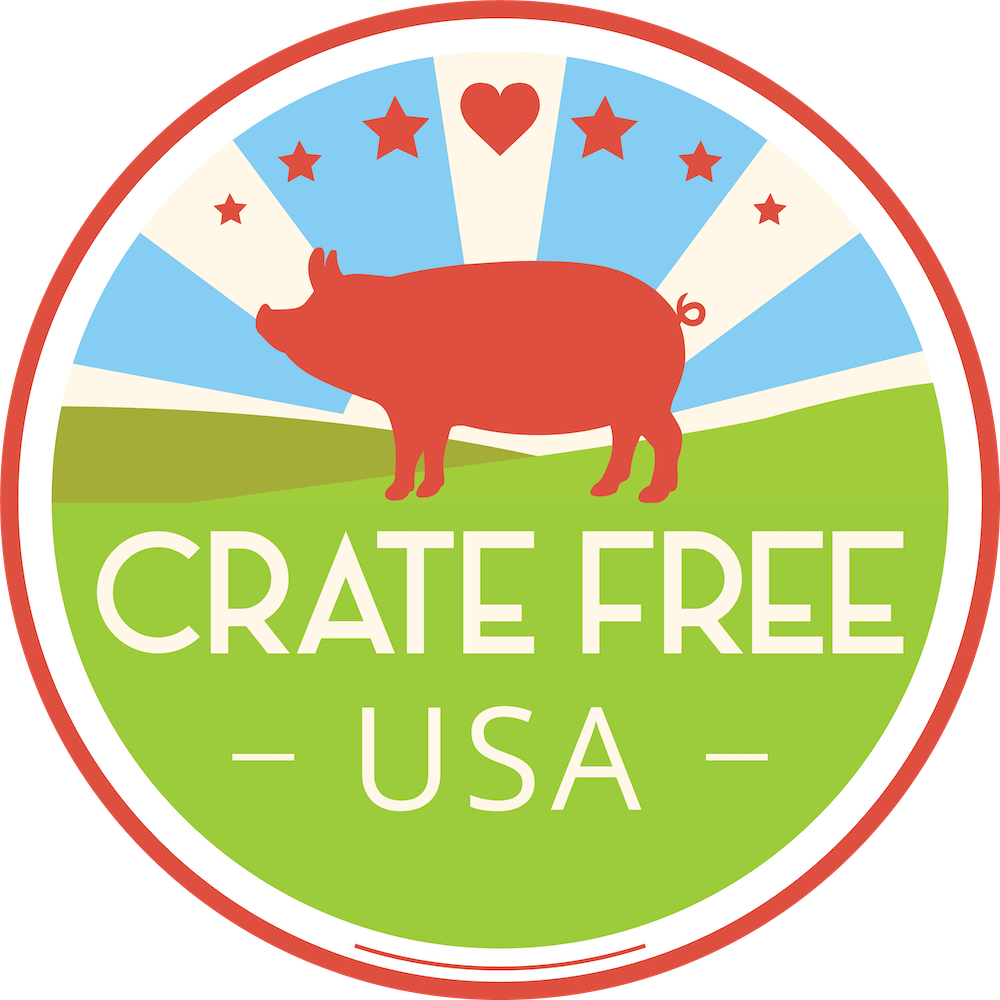
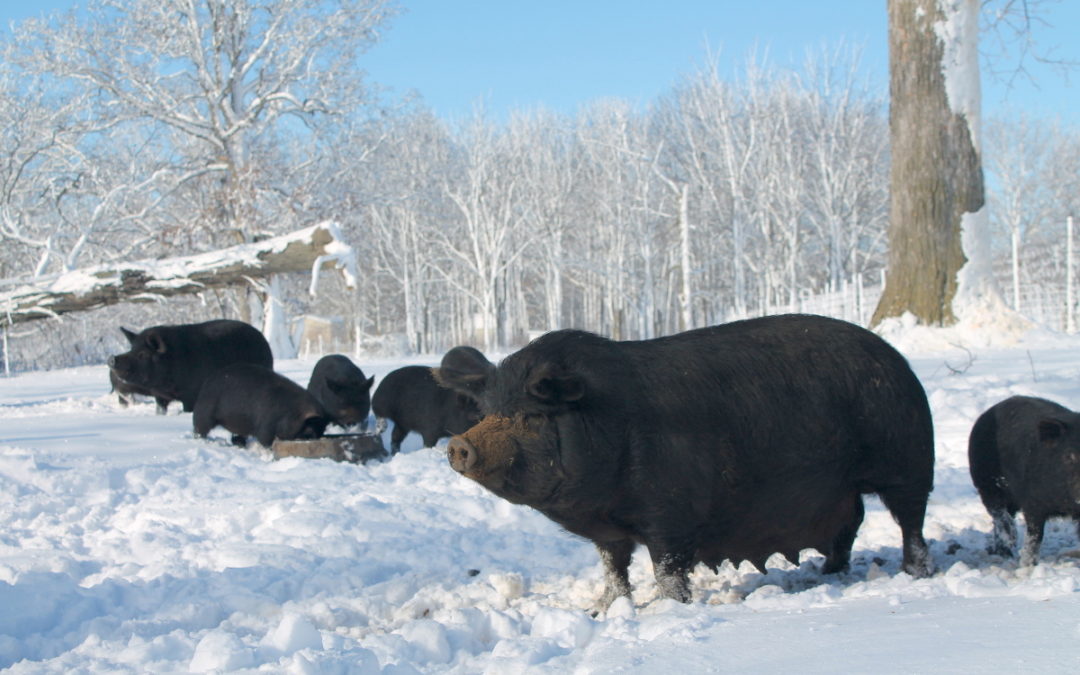
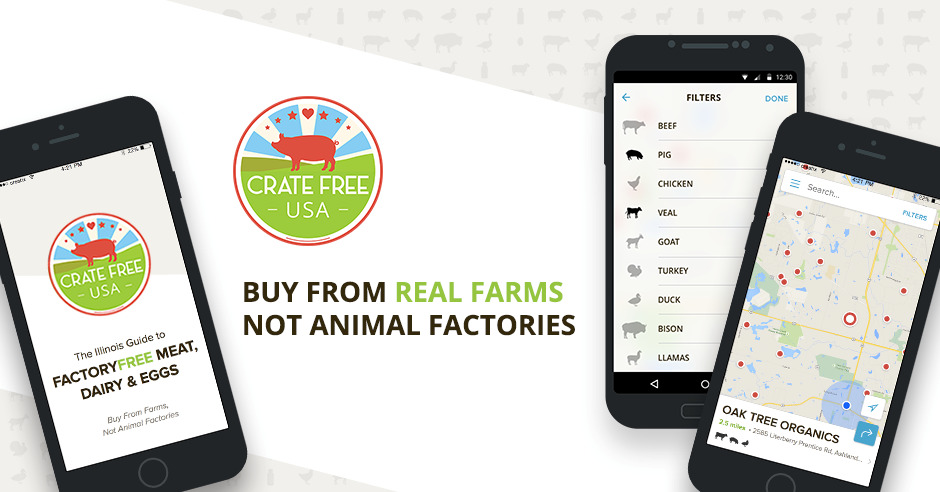
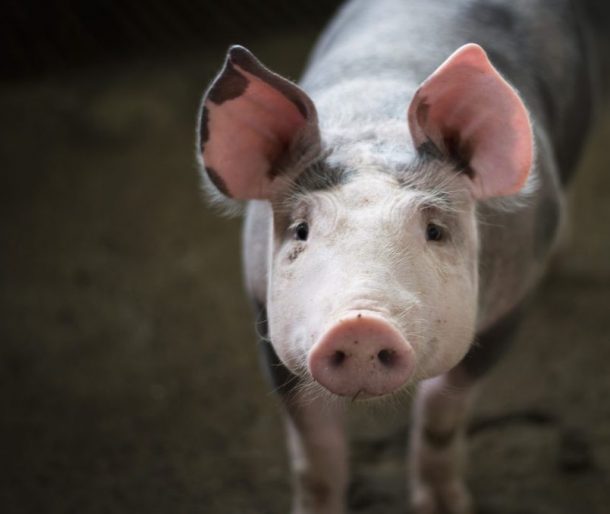
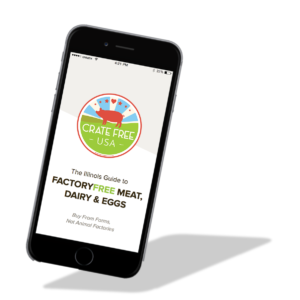
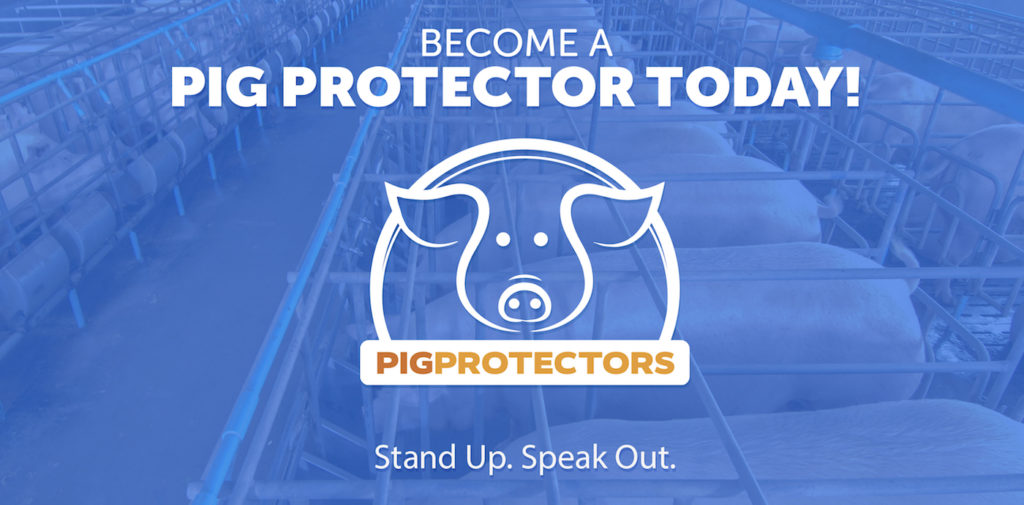
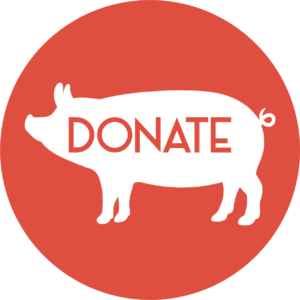
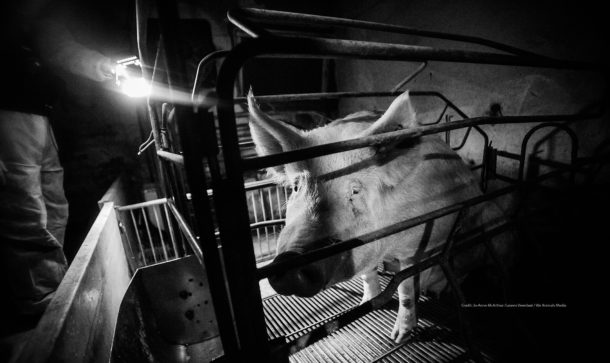
Hi Deborah
My name is Jan Knudson. I’m married to Dave who is Lynn’s brother.
I’m so intrigued with your farm/lifestyle.